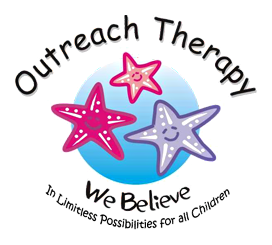Early Childhood Mental Health is a confidential child and family centered program. It is voluntary and is offered at no cost. The program is for children from birth to age 6 who are displaying emotional, behavioral and/or psychological concerns, and their families.
Referral concerns may include attachment issues, trauma, anxiety, complex grief and loss and challenging behaviors that are outside normal developmental expectations.
Treatment may include:
- Individual child and/or family therapy. Therapies include Play Therapy, Parent and Child Theraplay, Filial Therapy and Family Therapy.
- Consultation with the child's caregivers is essential. Parenting consultation may include mental health information on their child's individual needs, family dynamics, effective parenting strategies based on the child's needs, developmental, emotional and psychological needs, social and emotional skills, problem solving and specific ways to support children who communicate through their challenging behaviors.
- Where appropriate, and with permission from the parent/guardian, ECMH works with other service providers such as preschools, schools, community agencies and other professionals.
Therapeutic intervention is based on the child's and family’s individual strengths, needs, relationships and culture. The goals are developed in collaboration with the parent/guardians.
ECMH clinician offers therapeutic approaches that are individualized, relationship focused, child-sensitive, culturally attuned, and developmentally appropriate. We at ECMH believe that children have the innate capacity toward healing and learning effective coping skills and are uniquely equipped with the capacity for mastery.
ECMH supports parents in using evidence-based attachment-building strategies such as Theraplay, Filial Therapy, CDP, PCIT, and Circle of Security Parenting Program. In addition, there is a range of expressive therapies for children and/or family therapy sessions, including sand, play, and art therapy that are used specific for that child to promote treatment goals.
Families play an important role in children's healing processes. The interaction between children's problems and their families is always complex. Sometimes children develop problems as a way of signaling that there is something difficult in the family. Other times the entire family becomes distressed because the child's problems are so disruptive. In all cases, children and families heal faster when they work together. The play therapist will make some decisions about how and when to involve some or all members of the family in the play therapy. The therapist will need to communicate regularly with the child's caretakers to develop a plan for resolving problems as they are identified and to monitor the progress of the treatment. Further options may include involving a) the parents or caretakers directly in the treatment by modifying how they interact with the child at home and b) the whole family in family play therapy. (Ed. from Association for Play Therapy website: a4pt.org )
Goals of Early Childhood Mental Health:
- Build caregivers’ capacity to strengthen and support the healthy social and emotional development of their young children. Empower caregivers/parents with skills, developmental and specific-concern information, self-advocacy encouragement, and community resource connections. Support caregivers/parents in their efforts to make positive change.
- Support and enhance the security of attachment between caregiver/parent and child(ren).
- Encourage and support social-emotional-psychological wellness
- Address concerns early to prevent or minimize mental health and relational issues as the child grows.
- Provide individual and/or family therapy sessions to support the child’s healing process, help the child develop effective coping and emotional regulation skills, and support the parent(s) in understanding the child’s needs from a neurodevelopmental and attachment perspective.
- Collaborate with other involved professionals, with legal guardian consent, to support continuity of interventions and recommendations to the parents.
The Neurosequential model informs the work of Early Childhood Mental Health.
What is NMT?
The Neurosequential Model is a developmentally sensitive, neurobiology-informed approach to clinical problem solving and working with at-risk children. The model, developed by Bruce D. Perry, MD, PhD, is an approach that integrates core principles of neurodevelopment and traumatology to inform work with children, families and the communities in which they live. (from Neurosequential Model Network website)
What is Play Therapy?
Play Therapy involves the use of play so the therapist can understand how the child views the world, their relationships in the world, and themselves. Play is the child’s primary language and playing helps children organize their experiences. Through play the therapist communicates with children and helps them learn to solve problems and transform negative behaviors toward effective methods to communicate. Children naturally engage in play to create meaning, organize experiences, develop mastery and other essential developmental tasks. In play therapy, play allows children to distance themselves from difficult memories and feelings by using symbolic expression and work through them in a safe way and space. Play is critical for children’s emotional development; it helps them understand and effectively express their big emotions.
A Play Therapist (RPT, CPT, and/or BCRPT) is a licensed mental health professional who has earned a Masters or Doctorate degree in a mental health field with considerable general clinical experience and supervision along with advanced, specialized training, experience and supervision.
Video links on What Is Play Therapy:
https://www.youtube.com/watch?v=reJpo-GaopM
https://www.youtube.com/watch?v=_4ovwAdxCs0
https://www.youtube.com/watch?v=iV2XDYOqnk4&t=11s
